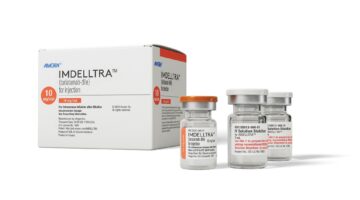In movies and on TV we often see surgeons turn on some music during a procedure, but does it actually improve the success-rate of the surgery in real life?
According to a new report in the British Medical Journal, music is played 62-72 percent of the time in the operating room (mostly classical), and roughly 80 percent of operating room staff say that music benefits cooperation between team members, reduces anxiety levels and improves efficiency. A surgeon’s task focus is also improved, according to the research.
Depending on how you work in your daily life, this might make total sense, or you might think that music would be distracting for such an important job. Surgeons from the University Hospital of Wales think music makes a big difference.

Using Informed Awareness to Transform Care Coordination and Improve the Clinical and Patient Experience
This eBook, in collaboration with Care Logistics, details how hospitals and health systems can facilitate more effective decision-making by operationalizing elevated awareness.
“Surgeons will inevitably continue to use music as a calming and familiar adjunct to their daily practice,” David Bosanquet, James Glasbey and Raphael Chavez wrote in the paper. “We… embrace music in the operating theater whenever the situation allows it.”
It’s not just music in general though – relaxing music and melodies that mimic the resting heart rate are more effective during a procedure, even more than giving a patient certain anti-anxiety medications before anesthesia, according to a 2009 study of 372 patients. Research suggests that this calming, positive affect makes a difference even after a patient leaves the operating room.
The Huffington Post pointed out some of the background behind this idea:
A growing body of research has also suggested that music’s healing properties extend to pain relief. A 2012 study from the Pain Research Center at the University of Utah found that participants who actively focused on various melodies while receiving mildly painful electric shocks reduced pain levels by 17 percent. Research conducted in Singapore also found that palliative care patients who participated in live music therapy reported relief from persistent pain.
“Active music engagement allowed the patients to reconnect with the healthy parts of themselves, even in the face of a debilitating condition or disease-related suffering,”the study’s co-author, music therapist Melanie Kwan of the Association for Music Therapy, Singapore, told the American Psychological Association. “When their acute pain symptoms were relieved, patients were finally able to rest.”

BioLabs Pegasus Park Cultivates Life Science Ecosystem
Gabby Everett, the site director for BioLabs Pegasus Park, offered a tour of the space and shared some examples of why early-stage life science companies should choose North Texas.
The staff surveyed in the BMJ piece had some ideas for dos and don’ts on a surgeon’s playlist. (Clearly these folks had a sense of humor about the subject.)
They suggest tracks such as “Stayin’ Alive” by the Bee Gees, “Smooth Operator” by Sade (“a must for all theatre mix-tapes”), “Comfortably Numb” by Pink Floyd, and “Wake Me Up Before You Go-Go” by Wham (“best played in recovery”).
Songs best avoided include “Another One Bites the Dust” by Queen, “Everybody Hurts” by REM, and “Scar Tissue” by Red Hot Chilli Peppers (“plastic surgeons should avoid this at all cost”).












